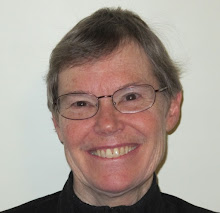I know these facts because I've been reading family history compiled years ago by my cousin Janet Nichols Derouin from old letters, Mary's diaries, Mary's mother's diaries, and other sources from the period. Last night I read this entry, quoted from Grandmother Nichols's 1873 diary:
Nov 18. Mary went to the Woman's Rights Convention with K. Johnson & M. Stone.
Janet had written these paragraphs to provide context:
There were two interests that Mary and Lizzie shared. They both had a burning interest in the subject of women's rights and temperance and I imagine Nell Stanley was interested as well but I have no documentation of it. As you remember in Part 1 before Lizzie was married, she was a member of The Band of Hope, a youth temperance organization.
All of the woman's rights organizations grew out of temperance groups, which really began in England in the early eighteen hundreds. As you know, the north-eastern part of the United States proved to be an early hot-bed of women asserting themselves on the subjects of slavery, temperance and woman's rights. On a national level, there were over one-hundred-thousand females in various anti-slavery and temperance organizations by 1830.
Both Lizzie and Mary read anything they could get their hands on concerning the on-going efforts for these causes and Lizzie subscribed to "The Union Signal" which was a publication of The Woman's Christian Temperance Union, organized in 1874. The paper was published in Chicago, Illinois, it cost $1.50 a year for fifty-two issues of fifteen pages or more and it preached total abstinence from alcohol, including beer and hard cider.
From that era on, through The Woman's Christian Temperance Union and the National Temperance Society, women were able to communicate their feelings to each other through the printed page, eventually gaining the largest political female clout in the history of mankind.Wow! After reading pages and pages of domestic details, quaint facts about housekeeping in the 1870's, afternoon "teas" and social visits, frequent childhood sicknesses (scarlet fever killing Lizzie's 8-year-old daughter in February 1873), this page suddenly brought me up to 2018. Women's marches. Resistance movements. Activism against sexual harassment, against discrimination.
I looked up Woman's Suffrage history, attempting to learn exactly which convention Mary attended. I found Susan B. Anthony's 1873 address. (She had been arrested for attempting to vote for Ulysses S. Grant in the 1872 presidential election.) It is amazing how RELEVANT her words sound today. She gave this speech many times, and it is posted online in many forms. For a quick read, I recommend this short version: www.historyplace.com/speeches/anthony.htm
Longer version: Constitutional Argument: Speech After Being Convicted Of Voting In The 1872 Presidential Election, by Susan B. Anthony. http://gos.sbc.edu/a/anthony.html

No comments:
Post a Comment